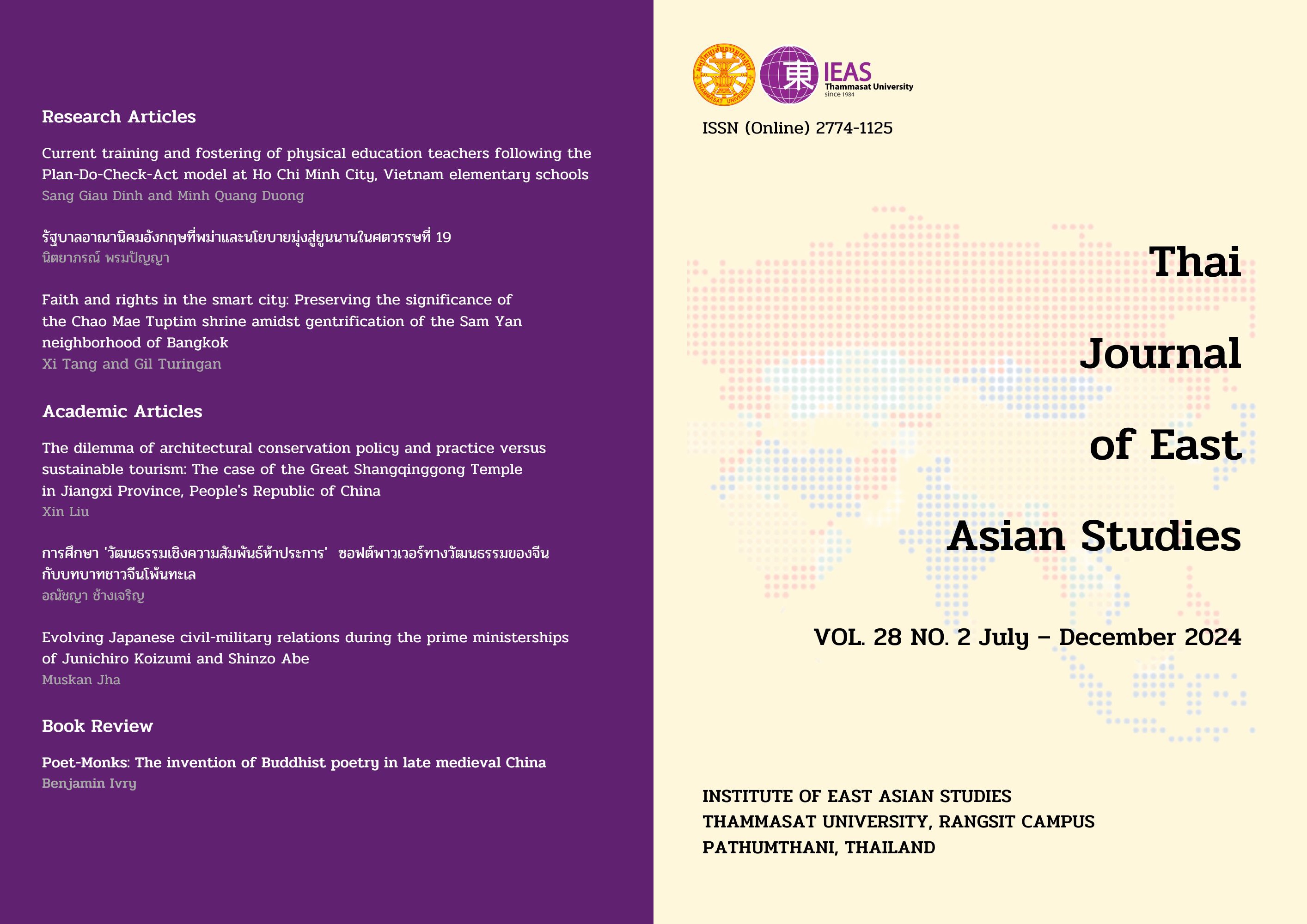A Study of the Culture of Five Relationships: The Cultural Soft Power of China and the Overseas Chinese
Keywords:
soft power, cultural soft power, the culture of five relationships, overseas ChineseAbstract
This article focuses on the study of China’s cultural “soft power,” particularly in terms of the “Five Aspects of Relationship-Based Culture,” or in Chinese, “Wu Yuan Culture (五缘文化).” It describes the nature of interpersonal relationships that constitute social networks within Chinese culture, comprising: kinship culture (亲缘文化), geographical culture (地缘文化), religious culture (神缘文化), professional culture (业缘文化), and object-related culture (物缘文化). These cultural forms are central to the social and cultural networks of the Chinese people, helping to deeply understand the relationship between the overseas Chinese and the Five Relationships Culture. This study provides a clearer picture of the relationship between the overseas Chinese and the Five Relationships Culture, which is considered a form of China’s cultural soft power. It demonstrates and reflects the distinctive Chinese culture through the lives of overseas Chinese in foreign lands.
Downloads
References
จุฑามณีนุช สืบสายไทย. (2545). สมาคม : ลักษณะการรวมกลุ่มของชาวจีนในประเทศไทย : กรณีศึกษาสมาคมตระกูลเฮ้งแห่งประเทศไทย [สารนิพนธ์ปริญญาศิลปศาสตร์บัณฑิต ภาควิชามานุษยวิทยา คณะโบราณคดี]. มหาวิทยาลัยศิลปากร.
วรางคณา กล้าจริง และ พงศ์นเรศ แจ้งพรมมา. (2565). แพทย์แผนจีนกับทางเลือกสุขภาพในยุคโลกาภิวัตน์. วารสารการแพทย์แผนไทยและการแพทย์ทางเลือก, 20(2), 370-383.
วัฒนา กีรติชาญเดชา. (2565). การค้ายาจีนแผนโบราณในประเทศไทย พ.ศ. 2493-2518 [วิทยานิพนธ์ศิลปศาสตร มหาบัณฑิต สาขาประวัติศาสตร์]. มหาวิทยาลัยธรรมศาสตร์.
สมบัติ จันทรวงศ์. (2557). มานุษยวิทยา. สำนักพิมพ์มหาวิทยาลัยธรรมศาสตร์.
สุรชัย ศิริไกร. (2544). ศาสนาและลัทธิความเชื่อของชาวจีน: การรวมศาสนาพุทธ เต๋า และขงจื๊อ. มหาวิทยาลัยธรรมศาสตร์
Brand Finance. (2024, January 17). Brand Finance Global 500 2024. https://brandfinance.com/insights/global-500-2024-report
Nye, J. S. (1990). Soft Power. Foreign Policy, 80, 153–171. https://doi.org/10.2307/1148580
Nye, J. S. (2004). Soft power: The means to success in world politics. Public Affairs, 1-20.
Suryadinata, L. (2017). The Rise of China and the Chinese Overseas: A Study of Beijing’s Changing Policy in Southeast Asia and Beyond. ISEAS-Yusof Ishak Institute.
Thuno, M. (2001). Beyond Chinatown: The Socioeconomic and Political Incorporation of the Chinese Diaspora in Indonesia and Malaysia. Copenhagen Journal of Asian Studies, 15, 70-95.
Wang, Y., & Lu, Z. (2008). The role of overseas Chinese in China’s relations with Southeast Asia. The Pacific Review, 21(4), 395-412.
中国共产党中央委员会. (2007).中国共产党第十七次全国代表大会文件.人民出版社.
中国共产党中央委员会. (2013). 中共中央关于全面深化改革若干重大问题的决定.人民出版社.
林其锬. (1989). 五缘文化与华人社会.福建人民出版社.
陈晓丹. (2022). 地缘文化与海外华侨华人文化认同. 现代传播, (第5期)
武心波. (2013). “五缘网”与“互联网”联姻. 东南学术, (第5期)
汪金国,汪毅刚. (2009). 新世纪中国文化软实力体系的要素评析. 当代世界与社会主义, (第6期第20-23页)
朴桂荣. (2008). 对高国家文化软实力”问题的理性思考. 黑龙江教育学院学报, (第 5 期)
Downloads
Published
How to Cite
Issue
Section
License
Copyright (c) 2024 Thai Journal of East Asian Studies

This work is licensed under a Creative Commons Attribution-NonCommercial-NoDerivatives 4.0 International License.



